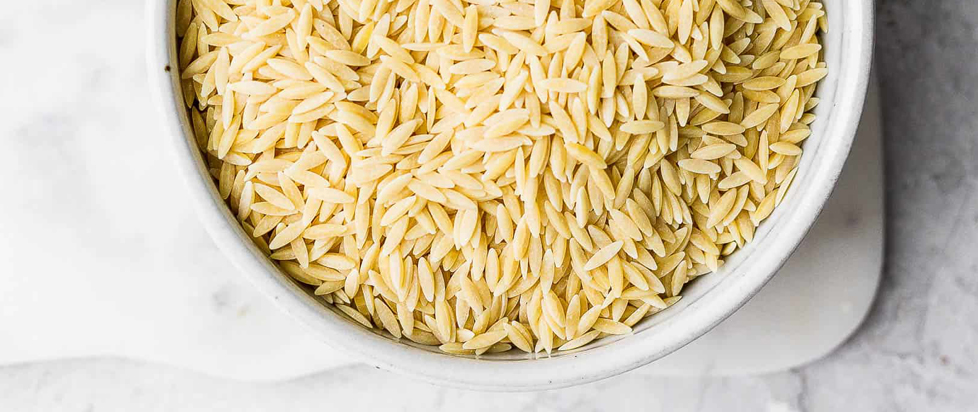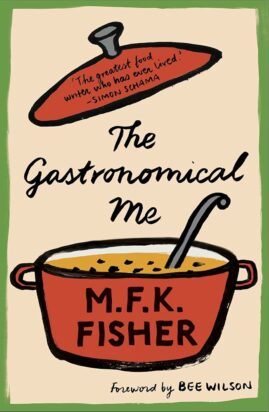
Consider the Orzo

This column is a reprint from Unwinnable Monthly #179. If you like what you see, grab the magazine for less than ten dollars, or subscribe and get all future magazines for half price.
———
Interfacing in the millennium.
———
Recently I haven’t been very hungry. There are compounding reasons for it, some that I know and can easily name and some that have been hovering like floaters in my vision, disappearing when I turn to look at them; I know it will go away in time, as these phases always do, but for now it is more than anything an extreme inconvenience. I find myself irritated and impatient with myself when day after day I find it a chore to eat, wishing I had the presence of mind to buy some Soylent instead of yet another pack of instant oatmeal or sodium-soaked ramen, knowing I need to put something in my stomach and resenting the entire situation. It’s unpleasant especially because I enjoy food, I enjoy cooking, and I feel robbed of a part of my life that makes me happy, and desperately eager for it to return.
In times like this I find myself returning to the writing of M.F.K. Fisher, who is not just my personal favorite food writer but, for my money, one of the most beautiful prose stylists in the English language. It’s entrancing to read how she writes about food, weaving it into the tapestry of her life and the context of her world, so that it becomes about much more than just a meal she had. She expressed this sentiment best in the introduction to her book The Gastronomical Me:
It seems to me that our three basic needs for food and security and love are so mixed and mingled and entwined that we cannot straightly think of one without the others. So it happens that when I write of hunger, I am really writing about love and the hunger for it, and warmth and the love of it and the hunger for it . . . and then the warmth and richness and fine reality of hunger satisfied . . . and it is all one.
She’s right! I feel this tension in my own life, the line pulled taut between spiritual and physical hunger. I am the least hungry when I’m stressed, or sad, or sick, when something has gone wrong elsewhere in my life and my stomach suffers for it. Every plate left half-full or coffee gone cold is a semaphore flag signaling distress, my lack of care creeping into the other parts of my life, and Fisher’s writing makes me feel like there’s a way I can work my way through it. If I treat my meals and my appetite with delicacy and attention, I might be able to come back to a place where they’re comfortable.

In many ways this tension reminds me of Marie Kondo and her much-loved, much-loathed “spark joy” method of decluttering. (I must clarify here that I’m a firm devotee of Konmari and found her system extremely helpful in clearing my life of unnecessary things; I believe that most critiques of her method are from people who haven’t actually read her book; that’s a topic for another article.) The “spark joy” catchphrase is what was most often taken from her fifteen minutes of fame, but another aspect of her system that I’ve felt almost as helpful is treating the things in your life, as well as the people, with intentional respect. You feel so much more of a connection with yourself and your surroundings when you are treating things with purpose and giving them intentional time and energy. The opposite, then, feels unsatisfying at best and actively draining at worst, which I am acutely aware of as I stare at the congealed remnants of this morning’s scrambled eggs, willing them to become edible again.
In unrelated news, the latest Instagram trend is orzo. Through whatever combination of my swiping and idle chatter during the day and, I’m convinced, my brainwaves somehow, Instagram reels know that I’m 1) hungry and 2) desperate, and they’ve curated me a perfect loop of picture-perfect meals guaranteed to fix my life, clear my skin, cure my depression and acquire somehow a picturesque beam of light to hit my kitchen counter just right in order to photograph the food they just taught me to make. It’s a pretty enticing sell; it “gets me” in the same way the beautiful pictures on the front of cookbooks “get me,” before opening to the recipe and seeing they use fifteen ingredients I could never locate in a grocery store. These videos are not without their faults – what’s with Boursin cheese? What’s with chili crisp? Who was the first person to make that stupid little “eating a whole cucumber” joke? How much are you people spending on dishware? – but the appeal is undeniable. When I’m feeling like shit, you’re right, Instagram user HotGirlHealthyHabits, I do just want to throw a bunch of shit in a little pot and roast it for a while, that would make me feel better about myself.
So, I did it. I made my little recipe. I cooked my orzo. The cherry tomatoes burst perfectly, the basil wilted and spread. It tasted really good; it looked healthy; I felt proud and sated. I pulled some nutrients from my garden and my pantry and put them into a pot and then put them into my body. A success for all parties involved! And then I logged back onto Instagram and, as the algorithm will do, what I saw was . . . even more orzo. Borderline identical videos, down to the timing and camera angles, impersonal and artificial. I felt my stomach turn. I looked at the pot on the stove, steaming suspiciously. This storyless, algorithmic food . . . does it really also nourish? Doubt crept in, the satisfaction fading . . .
But then I think back to Fisher. She wrote with just as much compassion about normal, unglamorous food as complex meals. She could write sonnets to a basic meal of bread and cheese (the progenitor to girl dinner? Let’s discuss.) Part of her magic was her commitment to appreciating what she had in front of her, the work that went into it and how it helped her. I feel it coming from the same place as Marie Kondo’s intentional appreciation of her possessions. It doesn’t matter if my meal was original as long as it was filling, as long as it made me happy and connected me to my body and gave me energy to get through the rest of the day. Fisher, as she always does, said it best:
There is food in the bowl and more often than not, because of what honesty I have, there is nourishment in the heart, to feed the wilder, more insistent hungers. We must eat. If, in the face of that dread fact, we can find other nourishment, and tolerance and compassion for it, we’ll be no less full of human dignity.
Alright, Mary, I get it. You made your point. I’ll go easy on the orzo.
———
Maddi Chilton is an internet artifact from St. Louis, Missouri. Follow her on Twitter @allpalaces.




